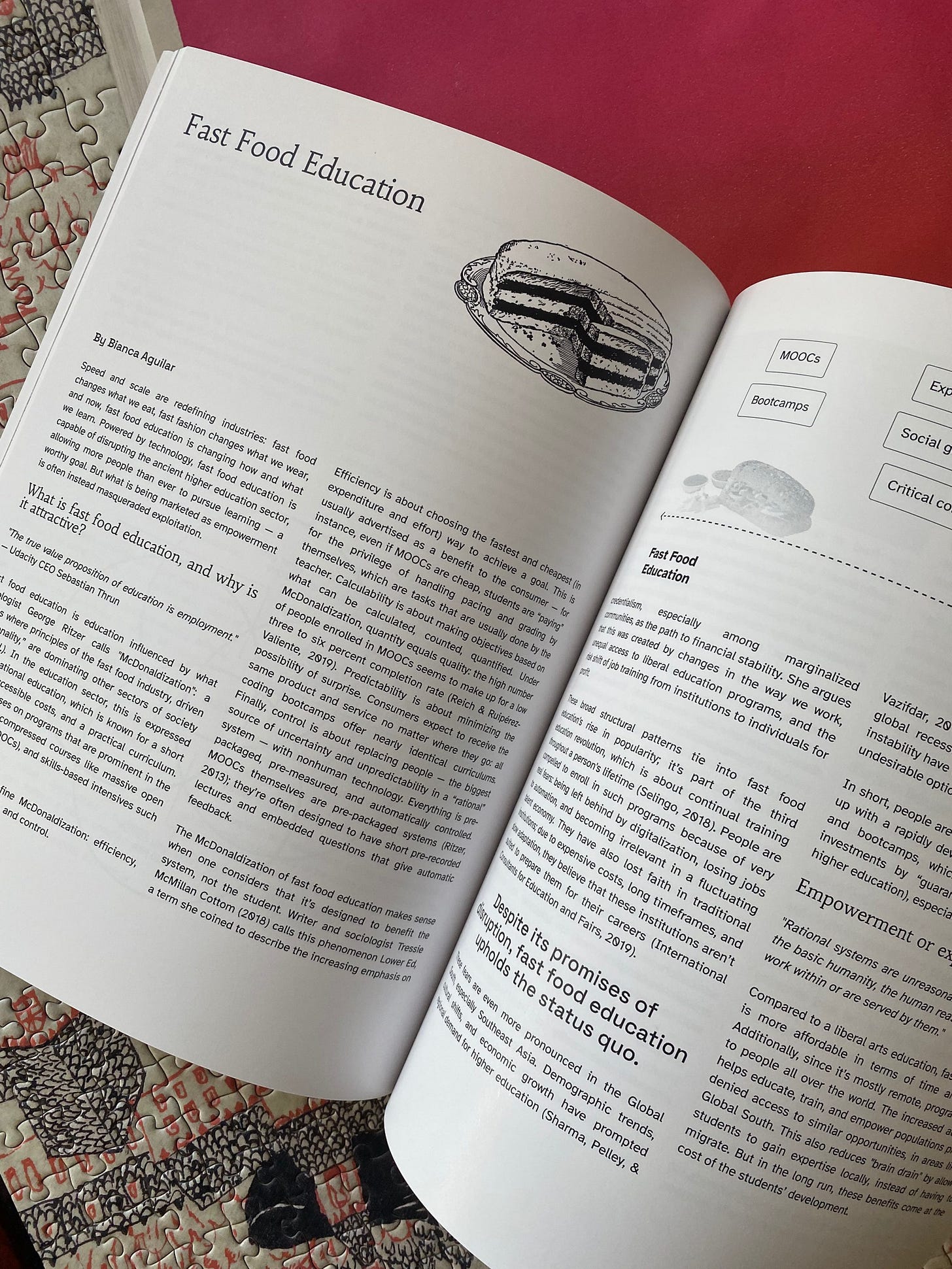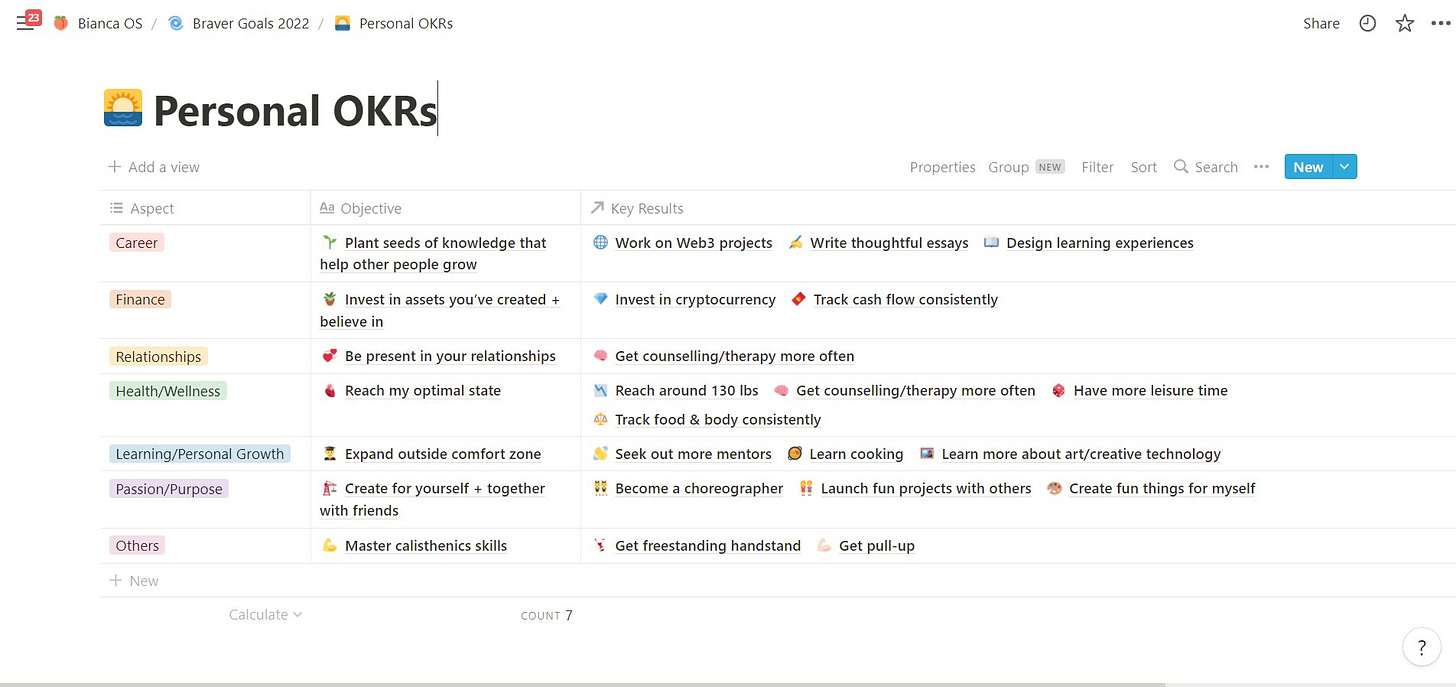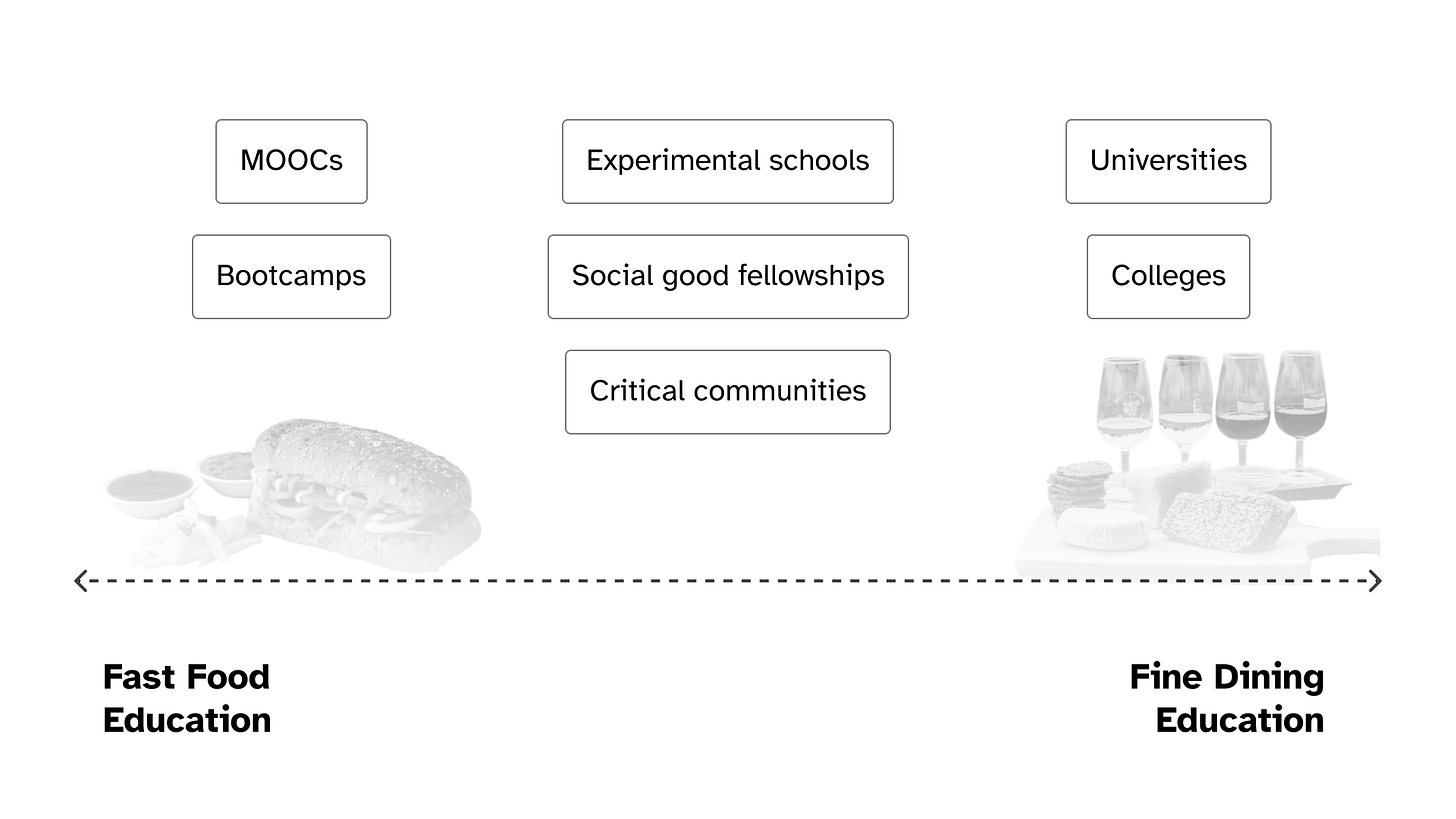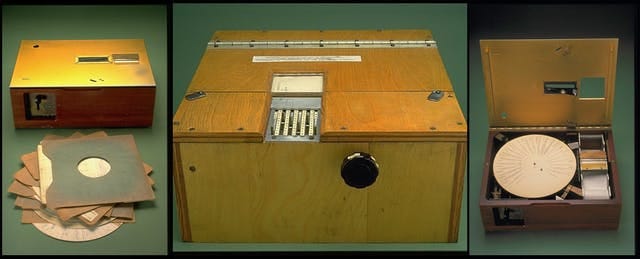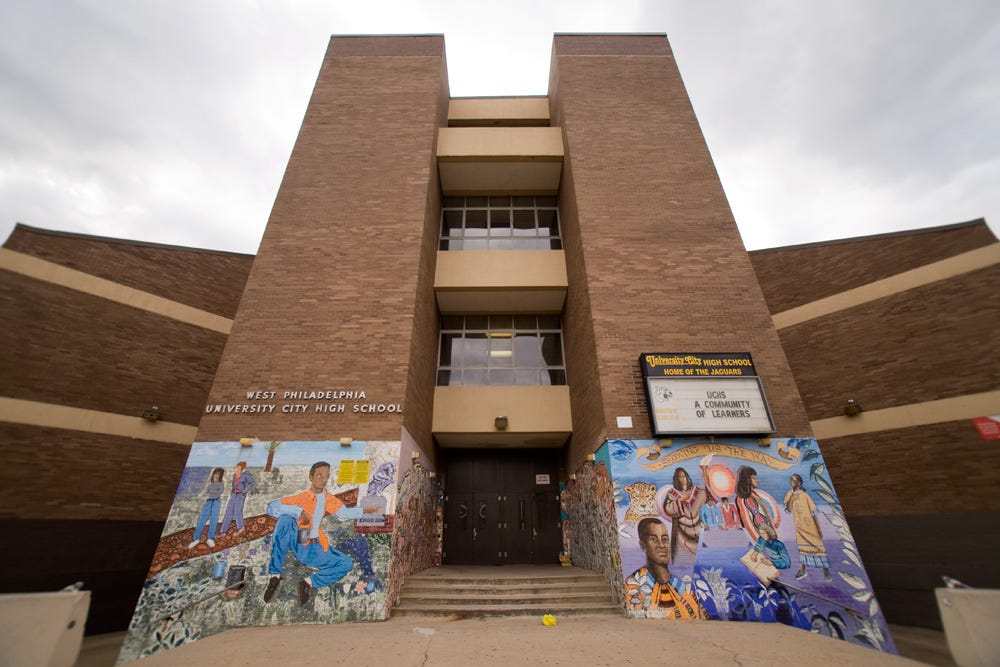Hello everyone! Happy new year! It’s amazing how much you can change in the span of a year. Last January, I was writing newsletter reflections for fun, unsure of where it’d take me. A year later, I’m now published in a magazine! I’m glad that my essay got to find a home in Kernel, a publication examining technology's role in shaping our collective future. I can never stop thinking about anything related to education + learning; being able to make sense of my jumbled thoughts & share them with the world is truly fulfilling. And if you haven’t read this essay yet, I can’t wait to share them with you all too!
My essay in printed form! Still haven’t received my copy though (international life) :’)
This year, I want to be more intentional with my time. I struggle to say NO to things, which makes me end up putting too much on my plate. 2021 made me realize how vital creation is to my life; going for long periods without creating (for myself) is truly life-sucking. Manifesting living more like an artist this year ✨
Writing is definitely one of the ways I want to keep creating. I can’t wait to share with you all the ideas I’ve had stored in my head since forever. In the meantime, please enjoy this issue!
An overview of the goals I made for myself this 2022. If you want, here’s the Notion template!
Reflection
Speed and scale are redefining industries: fast food changes what we eat, fast fashion changes what we wear, and now, fast food education is changing how and what we learn. Powered by technology, fast food education is capable of disrupting the ancient higher education sector, allowing more people than ever to pursue learning — a worthy goal. But what is being marketed as empowerment is often instead masqueraded exploitation.
Curation
🎨 Amazing Art
Cognition diary
A speculative design project by Lera Ganicheva, Cognition diary is a personalized learning tool and a knowledge base designed by people individually throughout their lives. It takes the form of a customizable VR space where buildings represent disciplines studied by the user. I love embodied learning (thanks to being both an educator and a dancer), so I also loved the concept behind this project! I hope to create a speculative design project of my own one day as well. Check out the full project here.






Classroom design explorations
What would a classroom look like if it wasn't teacher-led, but instead teacher-curated? Azlen Ezla explores this in these sketches, rethinking learning environments. As someone who struggles to sit still in a typical classroom, I am excited by the possibilities these sketches offer.
🤯 Interesting Innovations
Teaching Machines
Automation is no stranger to education. Way before the advent of personal computers, inventors and researchers created "teaching machines" for revolutionizing education. In her book Teaching Machines, Audrey Watters argues that this history is important for current educators & policy leaders to know. This quote of an interview of hers particularly struck me:
“I wanted to tell a story that didn’t have anything to do with computers,” she says, noting how mechanical early teaching machines were. “Because I think that too often in edtech, we get so hung up on the tech,” she adds. “We're so committed to talking about the latest gadget, the new software, this or that app, that we really act as though somehow it's that the tech is all there is to talk about. That the tech is the driving force of change. That the tech is the driving force of history.”
You can check out the whole book here.
Khan Academy Early Product Development / Long-term Research Reports
Combining practices from product design, academic research, and pedagogy, Khan Academy's experimental R&D group sought to explore and uncover future possibilities in education. 3 years of experimentation resulted in interesting reports on building complex reasoning skills, exploring creative math, and more! I admire how 1.) intersectional this research is (I want to do similar work in the future) and 2.) it's open-source! Read all the reports here.
Para-/Extra-Institutional Schools
Curated by Shannon Mattern, this channel is a wealth of initiatives that seek to reimagine education. I don't know about you, but I'm nerding out over these; I get excited thinking about how these alternative models of education can be brought over to the Philippines! Check out the full channel here.
📖 Rabbit Hole Reads (and Listens!)
Ten Expeditionary Learning Principles
Drawn from the ideas of Kurt Hahn and other education leaders, The Ten Expeditionary Learning Principles seek to describe a caring, adventurous school culture and approach to learning. I love how concise these are, and I plan to incorporate them into my own learning philosophy. You can check out all the principles here.
We Don’t Need No Innovation
Written by Phil Nichols, this essay illustrates how a fight over school reforms in West Philadelphia revealed the pathologies and possibilities of disrupting education. Reading this made me rethink what it means to be innovative. I particularly like this last line:
"If 'innovation' is to be anything more than a buzzword—or a Trojan horse for austerity measures, urban development, and workforce production—it must be rooted in such a commitment to the self-determination and flourishing of the publics that schools are meant to serve."
Read the whole essay here.
The Future of Education
In this talk with Russell Brand, Yuval Noah Harari shared his thoughts on the future of humanity, talking about the challenges facing the next generation (and how they might be overcome). This whole conversation was a delight to listen to! A lot of gems, like this line: "Many jobs are not worth saving - what we need to protect is not the jobs but the humans."


Education in Posthuman Times
A lecture intertwining education and philosophy? Sign me up! To be honest, I haven't fully listened to this yet, but I'm already intrigued by what I've seen, especially this quote from a 'becoming-manifesto' for posthuman education at the beginning:
"Posthuman education...creates spaces where we can be outside ourselves, be inside ourselves, be something else, be outside, be inside, be elsewhere but there, be not ourselves, be not a self at all but something and nothing all at the same time. Where a learner feels the learning somewhere along the pain to joy spectrum but sees the neurons fire either way; where the trees speak and the earth groans and the machines and the selves hear and listen to the wisdom of all of it and everything that is and sometimes is not."
🧘 Wise Words
Wondering what the current state of humanity would be like if schools weren't designed to limit us...

Thank You!
From the silent lurkers who read to the new friends I’ve made…I appreciate every single one of you. It is thanks to you all that I keep learning and creating 💖





